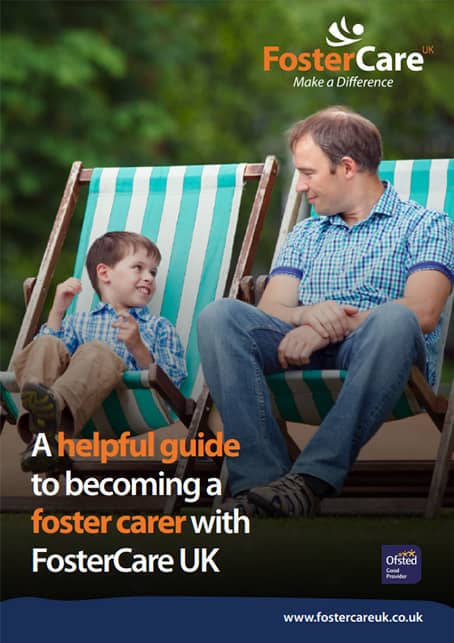


What happens when a child is taken into care?
Benefits of being a foster parent
What is a care leaver?
How to become a foster parent
How to foster a child
What are the foster care requirements
Can I choose who I foster?
Fostering with pets FAQ
How long does it take to become a foster parent?
What is the role of an independent fostering agency?
Fostering a disabled child
Tips for coping when foster placements end
Do foster carers pay tax?
What to expect in a fostering assessment
Common Fostering Challenges and Solutions
What disqualifies you from being a foster carer?
Muslim Fostering
Fostering as a single parent
Can you foster a child with a criminal record?
Can you work and foster?
Top 10 fostering myths
Can I foster if…?
Can I foster and rent?
LGBT Fostering: can I foster if I’m gay
Top transferable skills to become a foster carer
Can you foster with a mental health condition?
Christian Fostering
Sikh Fostering
Cultural Diversity in Foster Care
How to encourage foster children to read
Reasons for a child to be taken into care
Tips for coping with attachment disorders in Foster Children
Fostering vs Adoption
What happens when foster parents get divorced?
What is reunification in foster care?
How to deal with foster child bullying
A guide to the foster care handbook
Guide to fostering young children
Types of self-harm
A guide to fostering teenagers
What are the signs of depression in foster children?
According to recent statistics, over a third of children in care are between 10 to 15 years old, with a staggering 22,080 teenagers in care aged 16 and over.
Teenagers are often the most vulnerable, experiencing a lot of change during adolescence, leaving them at a crossroads. They seek stability, understanding and direction, which foster carers can lovingly provide.
In this guide, we’ll explore why teenage fostering is needed and how it can make a difference to the lives of young people in care.
Fostering teenagers can be very rewarding. Whether you are in the process of preparing your foster child for leaving care, or helping them to navigate through the complexities of teenage years – there are many benefits to fostering teenagers, such as:
Independence – most teenagers are in full-time education or take part in extracurricular activities, making them more independent than younger children in care.
Not as demanding – compared to young children, teenagers are less demanding. They are typically more self-sufficient and require fewer physical demands that a younger child would need e.g. feeding or bathing.
Easier communication – as teenagers are more developed than younger children, they can communicate more openly. Not only does this make it easier to provide the appropriate care, it creates a stronger bond between both a foster child and foster carer through deeper and more meaningful conversations.
Consistency – from daily routines, social life and hobbies, most teenagers value a consistent routine. This makes providing care and support much easier.
Support – teenage years are arguably the most critical part of a person’s life, shaping them into the person they will become. Foster carers are crucial to providing loving care and support during a time where it may be needed the most, becoming a role model to the teenagers in their care.
Similarly to young children, teenagers are often placed into care for the same reasons. This may include:
Here at Foster Care UK, we are proud to have foster carers from all walks of life. Regardless of your gender, religion, cultural background, ethnicity, sexual orientation or marital status, we would love to hear from you. All that we require are the basic legal requirements, including:
A care leaver is a young person between the age of 16-25, who lived in care for a minimum of 13 weeks since 14 years of age.
Local authorities provide support that is set in place to ensure that care leavers have the support they need when leaving care. However, the support varies from each local council and may not be sufficient enough.
Here at FosterCare UK, we recognise the challenges care leavers might face when leaving foster care. That’s why we have an additional support system in place to help our care leavers, which includes a ‘pathway plan’ to help each care leaver achieve their goals. Find out more about our care leaver support here.
‘Staying put’, or as we call it here at Foster Care UK, ‘staying close’ is a government scheme in England whereby young people have the right to remain in the care of or in contact with their foster family after their 18th birthday. It is intended to support care leavers who may benefit from extending their stay with their foster family. Find out more about the ‘staying put’ policy here.
Looking for more information on who can foster? Or the different types of fostering available? Simply get in touch with a member of our team on 0800 012 4004 to help answer any questions you may have.
If you’ve got any questions or would like to find out more about fostering with Capstone, fill out the form below.
An experienced fostering advisor from your local area will then be in touch.

Start the conversation today. Our team of friendly advisors are on hand to answer any foster care questions you may have. We can offer you honest and practical advice that can help you decide if becoming a foster carer is the right path for you.


